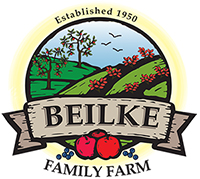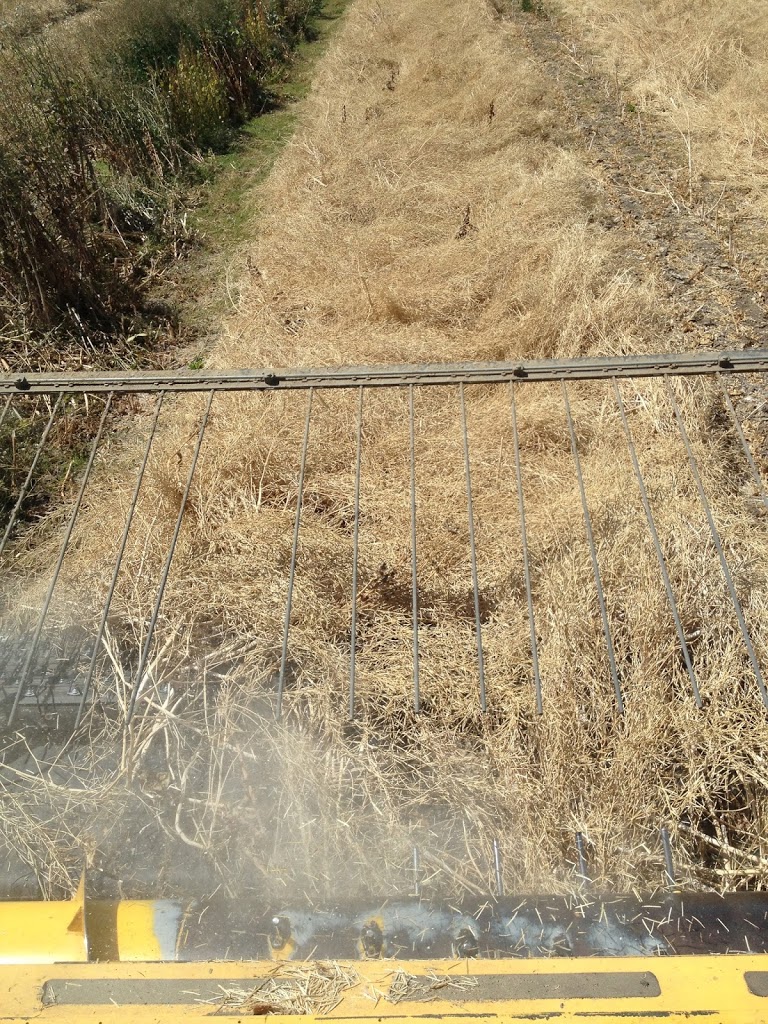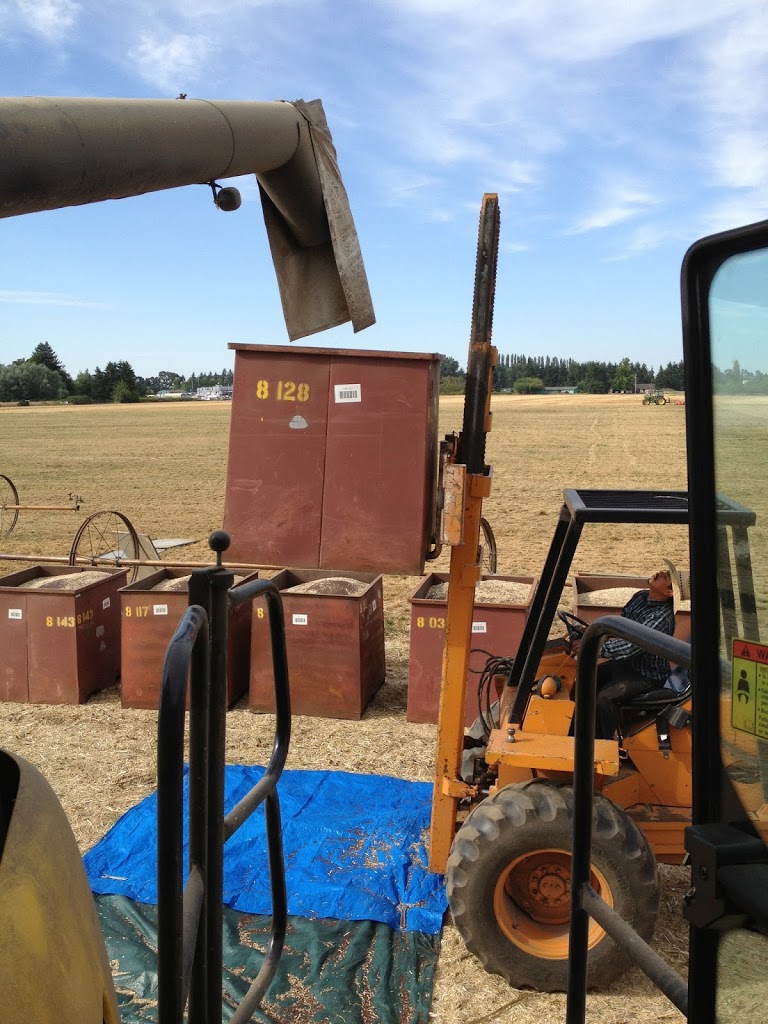We got our Indian Mustard seed harvested last week. Another crop down!
Vegetable seed crops are grown in smaller acres because a little goes a long ways. We had 7 acres this year of this seed.
We have to lift the bin up centered under the auger so the seed actually gets into the bin and doesn't blow away. If fills quickly so you want to make sure not to overfill it!
I explained on our Facebook page, that the Indian Mustard seed will get packaged into small seed packets, like we buy for our own gardens here. They will be sent to Japan though. I guess the Japanese plant the seeds and grow the mustard until it is a very young plant. They then pick off the leaves and eat them for breakfast. I am not sure what they make exactly but how interesting! Definitely different than my cereal and toast for breakfast!
This notebook was part of our big project we accomplished over the winter/spring! I measured it and the binder is 4 inches thick! And all because we grow blueberries!
We have been certified for the past several years for Good Agricultural Practices (GAP), but this year it was required of all the fresh market blueberry growers to become Global Gap certified. Similar but way more involved than GAP. Honestly it was very intimidating when we first heard about it. It requires us to comply with 100 pages of "control points." It covers things like, Field sanitation, Workers Health, Safety and Welfare, Integrated Pest Management, Past Land Use history, Water management, Plant Protection Products, Traceability, etc.
And while we were already in compliance with much of it, it required having documentation of all of the above, thus the reason for the huge notebook. In July, we had our official audit, where an inspector comes out. They go through our entire notebook and ask questions about it, then they do a field walk through on a day of harvest and make sure we have enough restrooms, hand washing stations, good field and worker sanitation, etc.
We passed with flying colors!!!!!
I think the Global Gap requirements are a helpful thing to the blueberry industry. It really in the end protects us blueberry growers. All of us growers want to avoid a recall of our fruit at all costs. First of all because we want to have clean fruit leave our farm, but also because we rely on these crops for our income. The practices of Global Gap help put all growers on the same playing field with sanitation, etc.
To learn more, you can check out this website:
I just wanted to show another side of farming because it isn't only working out in the fields. We have so much paperwork we have to do, not even counting the Global Gap stuff. Sometimes it gets old because you feel like you are doing things that don't matter, but I am sure all industries have to deal with this.
I can't even count the hours I spent getting ready for Global Gap. It was endless but now that we have the first year behind us, the following I know will be much easier.
This picture below, is of us and our blueberry buyer/packager trying to decide when we should harvest our second picking of the blueberries. Sometimes it is a tricky judgment call depending on weather, availability of pickers and how long the fruit can hang without diminishing the quality. It is nice to have a second opinion, especially from the company that is buying your berries.
We ended up picking this field sooner than we were thinking because this variety of berry doesn't handle heat well so we needed to get them picked soon so they don't get soft and wrinkled. Some berries, you can let hang after they are blue and they handle the heat better. You think blueberries are blueberries, but each variety has pros and cons to the grower!
And the farming adventures continue!
And don't forget to check out of Facebook page: Beilke Family Farm.








